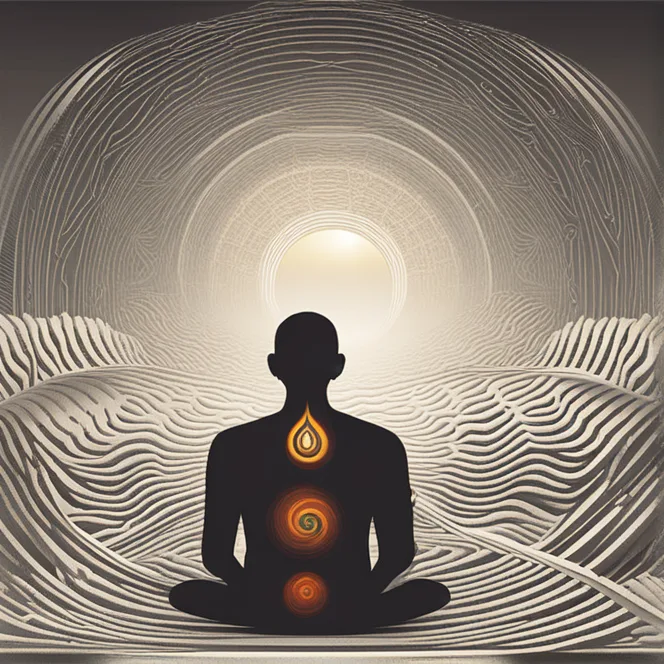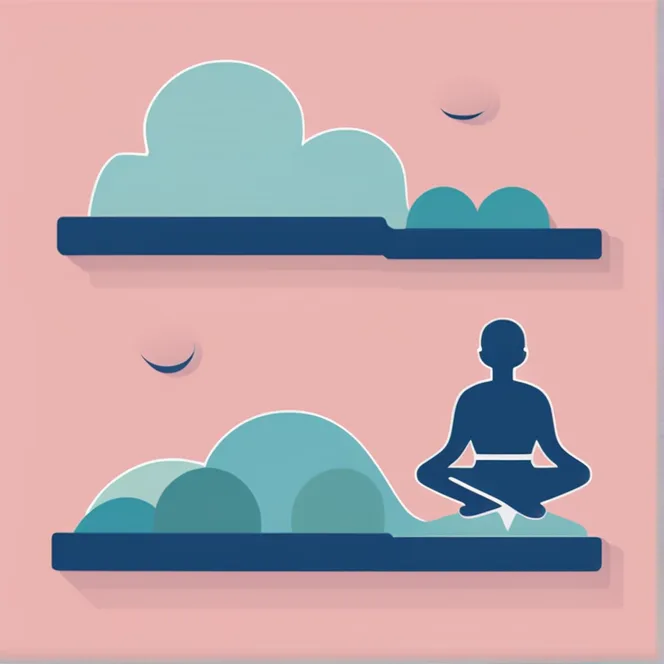
Mindfulness vs. Meditation: Understanding The Distinction
Explore the subtle differences between mindfulness and meditation, and learn how they contribute to your well-being in this insightful article.
article by Hina Kurosawa
Defining Mindfulness
Mindfulness is a term that captures a form of attention and awareness that can be brought to any situation. Often described as being present in the moment, mindfulness involves noticing and accepting one's thoughts, feelings, bodily sensations, and surrounding environment without judgment. Its roots can be traced back to ancient Buddhist practices, but it has gained significant traction in modern psychology and wellness communities. The essence of mindfulness is to observe without criticism; by bringing your awareness to the here and now, you enhance your life experiences and engage more fully in the present moment.

The Meditation Journey
Meditation, by contrast, is an intentional practice where one uses a technique – such as focusing on the breath, an object, or a mantra – to train attention and awareness, and achieve a mentally clear and emotionally calm and stable state. Traditionally, meditation has been associated with spiritual growth and enlightenment, but it's also hailed for its stress-relieving benefits. There are numerous styles of meditation, including transcendental meditation, guided meditation, and mindfulness meditation, the latter of which blends mindfulness into the meditative practice.

Mindfulness in Daily Life
What sets mindfulness apart is its applicability to daily life. While meditation often requires setting aside time for practice, mindfulness can be incorporated into any activity. Whether you're eating, walking, or talking to someone, mindfulness invites you to fully engage with the activity at hand. This constant state of presence could potentially transform mundane tasks into more enriching experiences. Moreover, the integration of mindfulness helps in managing stress, improving focus, and fostering an overall sense of well-being.

Integrating Meditation Into Routine
Meditation, while sometimes integrated with everyday activities, typically calls for a designated time and space. Practitioners often meditate at the same time each day, creating a structured routine that allows for deeper introspection and relaxation. Regular meditation can lead to lasting changes in brain function, enhance concentration, and promote a sense of peace. The cumulative benefits of a consistent meditation practice can be quite profound, influencing various aspects of personal health and behavior.

The Synergy of Mindfulness & Meditation
Understanding the relationship between mindfulness and meditation is crucial. They are not mutually exclusive but are, instead, complementary practices. Regular meditation strengthens the ability to be mindful, as one learns to bring their focus back repeatedly during a meditation session. This skill translates to an improved capacity for mindfulness throughout the day. Conversely, frequent mindfulness can ease the transition into a meditative state, making it easier to delve into meditation practices.
Choosing Your Path
Ultimately, whether you choose to pursue mindfulness, meditation, or a combination of both, the goal is to find a path that leads to greater inner peace and self-awareness. Both practices offer myriad benefits and can be adapted to fit into any lifestyle. As you learn more about each, you may discover that one resonates with you more deeply, or you may develop a routine that includes elements of both. The beauty of these practices lies in their flexibility and the personal journey they facilitate.
Published: 12/5/2023
Modified: 12/5/2023
More predictions
Come back here soon to learn more about yourself and your future


The Dance Of The Mind & Body
Ballet is often described as the art of defying gravity, where dancers seem to float effortlessly across the stage. Achieving this illusion requires an extraordinary level of mind-body coordination and awareness. Meditation, with its emphasis on mindfulness, can be a transformative tool for ballet dancers.


Meditation In Virtual Reality: A Journey Within
This article delves into the fascinating world of meditative VR experiences, exploring how they provide a unique gateway to mindfulness and self-discovery. We will examine the potential benefits, the merging of technology and spirituality, and the profound impact of these immersive experiences on the mind.


Mindfulness For Life Coaches & Counselors
Life coaches and counselors play a pivotal role in guiding individuals through personal and emotional challenges. As the demands of modern life continue to increase, the need for effective tools and techniques to support mental well-being has become more critical than ever. One such tool that has gained significant recognition in the realm of coaching and counseling is mindfulness. In this article, we will explore the profound benefits of mindfulness for life coaches and counselors, shedding light on how this practice can enhance their effectiveness in helping clients navigate the complexities of life.